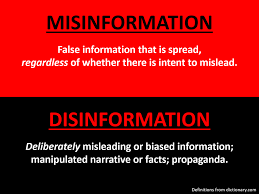Fact checking Misinformation and disinformation in the case of COVID-19, information can be a literal lifesaver, when it’s true, wrong information doesn’t help anyone and can even make things worse. Like a virus, wrong information can spread, causing what’s been called an ‘infodemic’.
‘Infodemic’ is described by Collins dictionary as – A situation in which a lot of false information is being spread in a way that is harmful:
- According to the WHO, the COVID-19-related infodemic is just as dangerous as the virus itself.
- The leaders of social media companies have failed to tackle the infodemic of misinformation.
The World Health Organisation (WHO) recognise and describe infodemic as;
An ‘infodemic’ is too much information including false or misleading information in digital and physical environments during a disease outbreak. It causes confusion and risk-taking behaviours that can harm health. It also leads to mistrust in health authorities and undermines the public health response. An ‘infodemic’ can intensify or lengthen outbreaks when people are unsure about what they need to do to protect their health and the health of people around them. With growing digitization – an expansion of social media and internet use – information can spread more rapidly. This can help to more quickly fill information voids but can also amplify harmful messages.
When talking about an ‘infodemic’, we must understand there are 2 types of incorrect information;
- Misinformation
- Disinformation

Misinformation refers to the sharing of incorrect information that is unknown to be incorrect by the person sharing/posting.
Disinformation however is much more sinister and is spread with the aim to ill mislead or deceive people to a particular way of thinking, this means that if we the reader do not fact check what we read/share we would be contributing to the infodemic brought about by ill informed individuals/organisations with their own agender.
The difficulties with not fact checking is that we could falsely identify disinformation as truth which then would become misinformation, by sharing unverified information we are unknowingly spreading misinformation.
Fact checking – WHO approved sites relating to the vaccine
To counter act the spread of mis/disinformation the WHO have created a global network of trusted websites relating to reliable vaccine information. If your unsure about an item of information relating to the Covid-19 vaccine or vaccines in general you can check the reliability of the source website Here.
